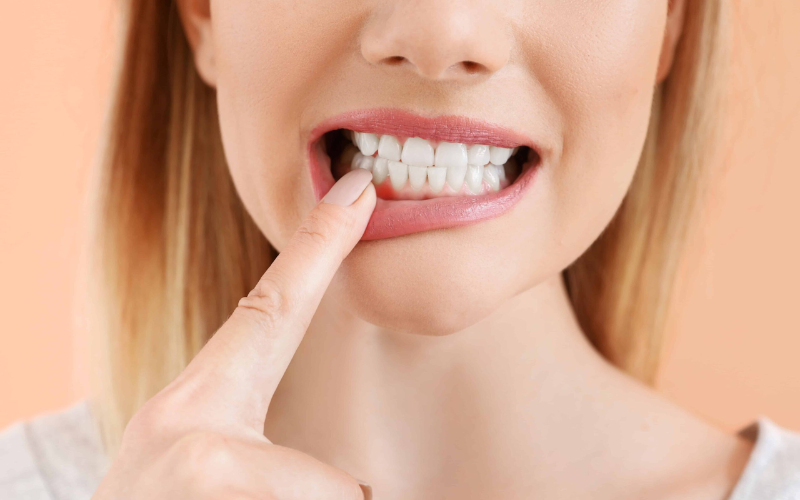Gum disease is more common than you might think, affecting nearly 47% of adults over 30 in some form. While many believe it’s just about poor brushing habits, the truth is much deeper. From bacteria to lifestyle choices, multiple causes of gum disease. Let’s explore the main factors and how to protect your smile.
Is Your Smile Safe? Find Out With These Reasons Behind Gum Disease
1. Poor Oral Hygiene: The Leading Cause
If you neglect your brushing and flossing routine, plaque buildup is inevitable. This sticky film of bacteria hardens into tartar, leading to inflammation and infection in the gums. Without proper care, gingivitis—the early stage of gum disease—can progress to periodontitis, a more severe condition.
What You Can Do:
- Brush twice daily with fluoride toothpaste.
- Floss at least once a day.
- Use an antibacterial mouthwash to reduce plaque.
- Visit dentist for regular cleanings.
2. Smoking and Tobacco Usage
Tobacco products reduce blood flow to the gums, making it harder for them to heal from infections. Smokers are twice as likely to develop gum disease compared to non-smokers.
How To Reduce The Risk:
- Quit smoking or use cessation aids.
- Avoid chewing tobacco and nicotine products.
- Seek support from healthcare professionals.
3. Genetics: Are You More Prone to Gum Disease?
Some individuals inherit a predisposition to gum disease. If your family has a history of periodontal issues, you might be at a higher risk—even with excellent oral hygiene.
Preventive Measures:
-
- Inform our dentist about your family history.
- Schedule more frequent dental check-ups.
- Maintain an extra-vigilant oral care routine.
Consider a deep cleaning procedure scaling and root planing, that removes plaque and tartar from below the gumline to help prevent or manage early-stage gum disease.
4. Poor Diet and Nutrition: Feeding The Problem
A diet high in sugar and processed foods fuels harmful bacteria in your mouth. On the other hand, a lack of essential Vitamin C weaken gum tissue and slow healing.
Gum-Friendly Foods:
- Leafy greens and fresh vegetables.
- Dairy products for calcium.
- Nuts and seeds for essential minerals.
- Water to keep your mouth hydrated.
5. Stress and Hormonal Changes: The Unexpected Triggers
Stress weakens the immune system, making it harder for your body to fight infections, including those in your gums. Hormonal fluctuations—such as during pregnancy, menopause, or puberty—can also make gums more sensitive and prone to disease.
How To Counter These Factors:
- Manage stress through exercise or meditation.
- Maintain a balanced diet and stay hydrated.
- Reach out to our dentist if you’re experiencing hormonal changes.
6. Medical Conditions and Medications
Certain diseases like diabetes, heart disease, and autoimmune disorders can be the causes of gum disease. Additionally, medications that reduce saliva flow (such as antidepressants or antihistamines) can lead to dry mouth, increasing bacterial growth.
What You Can Do:
- Discuss oral health concerns with your doctor.
- Stay hydrated and chew sugar-free gum to stimulate saliva.
- Follow a strict oral hygiene routine.
Take Charge of Your Gum Health Today!
Gum disease isn’t just about poor brushing—it’s influenced by multiple factors, from lifestyle choices to genetics. The good news? Prevention is within your control! By maintaining a solid oral care routine, making healthy choices, and staying informed, you can protect your gums and overall well-being. Don’t wait until symptoms appear—start caring for your gums today!

